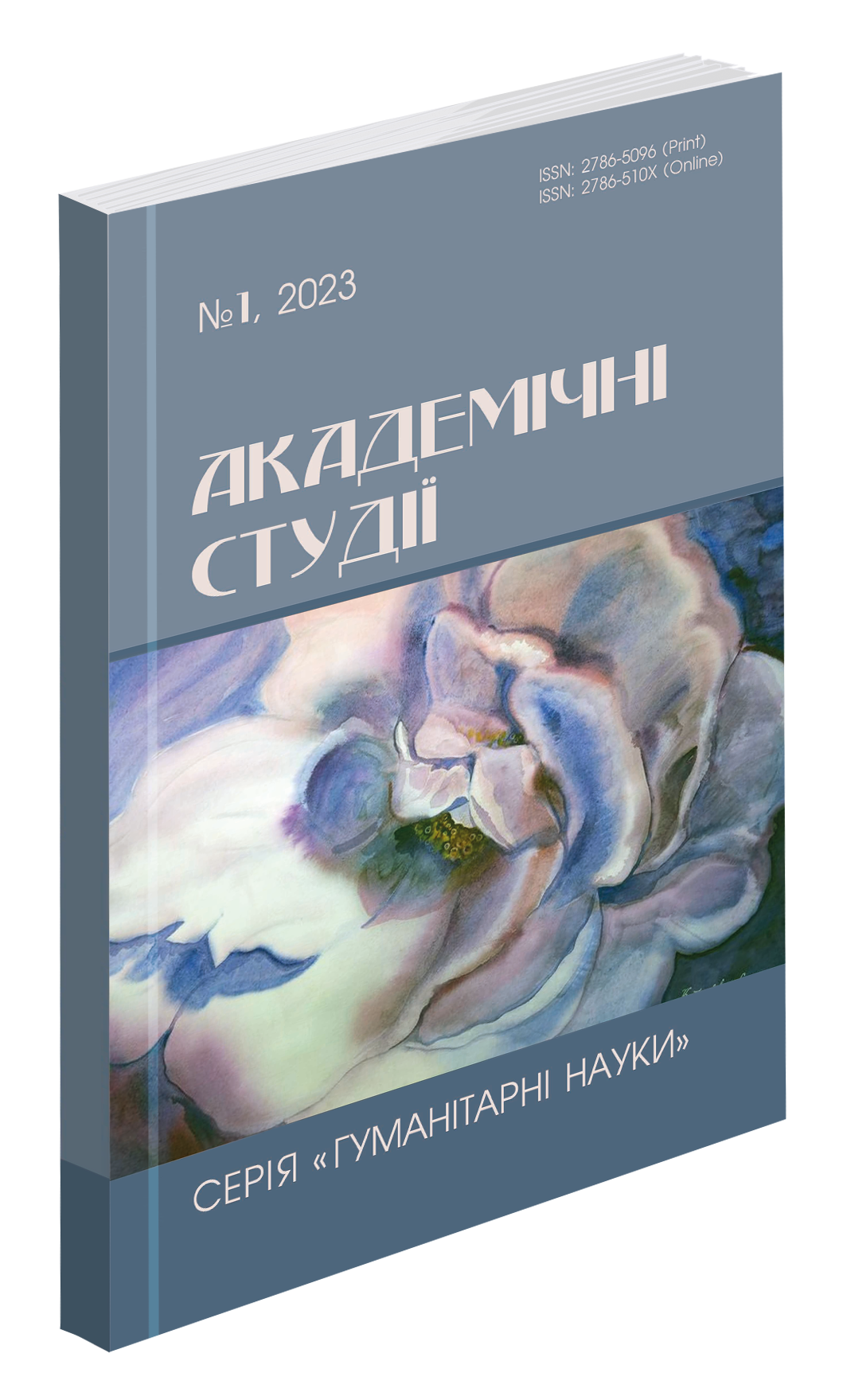Abstract
The objective of the article is to establish the functions of dialicticisms in modern Ukrainian literature. The process of transformation of the stylistic functions of dialect units in artistic works, their acquisition of a new stylistic load (on the basis of the artistic works of Yurii Vynnychuk, Myroslav Laiuk, Oresta Osiichuk) was studied. It was found out that in the novels «Apricot Bookstore» by Oresta Osiichuk, «Iron Water» by Myroslav Laiuk, «Tango of Death» by Yurii Vynnychuk, the events in which unfold in two time sections – at the beginning of the 20th century. and at the beginning of the 21st century, dialectics function primarily as a time marker, a means of distinguishing the specified two time planes. In the novel «The Apricot Bookstore» by Oresta Osiichuk, dialectics function as a means of creating the flavor of the historical era of the beginning of the 20th century. The introduction of dialectisms into the speech of the characters of this time ensures their regional identification as residents of a small town in the West of Ukraine, living in the 20th century, and contrasts it with the language of the heroes of our time, in which dialect elements are recorded much less often. The study of the language of M. Laiuk work «Iron Water», in which the action takes place in the Carpathians in two time planes – at the beginning of the 20th century and in our time, proved the use of dialectics also primarily as a means of distinguishing two plot-time lines. Dialect units are used in the description of events and characters of the beginning of the 20th century, where they traditionally perform cognitive, ethnographic, expressive functions, are a means of localizing events and achieving artistic persuasiveness in the depiction of characters, identifying them as residents of the Carpathians. In order to create, first of all, a temporal flavor – the atmosphere of old Lviv – dialectics was also used in the works of Yu. Vynnychuk. In the novel «Tango of Death» dialectics are mostly concentrated in the depiction of Lviv before and during the Second World War, dialectics are recorded to a lesser extent in the description of events and characters of our days.
References
Винничук Ю. Танґо смерті. Харків : Фоліо, 2012. 432 с.
Горбач О. Львівські проступницько-тюремницькі арготизми до 1930-их років [Lviv criminal and prison argotisms until the 1930s]. Зібрані статті. Арґо в Україні [Collected articles. Argo in Ukraine]. Мюнхен, 1993. C. 207–236.
Ґрещук В. Діалектна лексика в романі М. Дочинця «Горянин». Українознавчі студії. Івано-Франківськ : 2019. № 20. С. 129–141.
Ґрещук В. Гуцульський діалект у мові сучасної української літератури. Вісник Прикарпатського університету. Філологія. 2012. Вип. 32–33. С. 214–219.
Козицький А. Батяри. Енциклопедія Львова / за ред. А. Козицького та І. Підкови (с. 190–192). Львів : Літопис, 2007. С. 190–192.
Колоїз Ж. В. Діалектизми в романі Марії Матіос «Солодка Даруся». Філологічні студії : Науковий вісник Криворізького державного педагогічного університету : зб. наук. праць. 2010. Вип. 4. С. 98–117.
Лаюк М. Залізна вода. Львів : Видавництво Старого Лева, 2021. 264 с.
Ніколаєнко І. О. До питання про «олітературення» діалектів. Лінгвістика. 2010. № 3(21). Ч. 1. С. 223–227.
Осійчук О. Абрикосова книгарня. Київ : Наш Формат, 2021. 240 с.
Пена Л. Гуцульські діалектні риси в поезії Марії Матіос. Вісник Прикарпатського національного університету імені Василя Стефаника. Філологія. 2010. Вип. 25–26. С. 77–81.
Пена Л. Діалектизми в сучасному поетичному мовленні. Філологічні студії. 2013. Вип. 9. Ч. 2. С. 298–306.
Хобзей Н. Слова і місто, або місто в словах. Лексикон львівський: поважно і на жарт. Львів : Інститут українознавства ім. І. Крип’якевича НАН України, 2009. С. 7–38.
Ципердюк О. Гуцульські діалектизми в мові роману «Непрості» Тараса Прохаська. Вісник Прикарпатського університету. Філологія. 2012. Вип. 32–33. С. 242–250.
Яворський А. Лексика волинсько-поліської говірки в романі Володимира Лиса «Століття Якова». Лінгвістичні дослідження : зб. наук. праць ХНПУ ім. Г. С. Сковороди. 2013. Вип. 36. С. 137–142.

